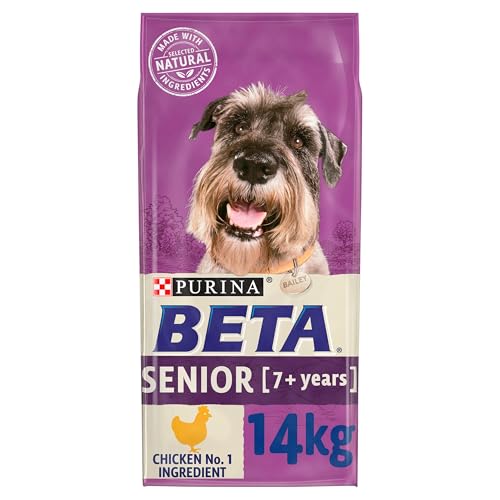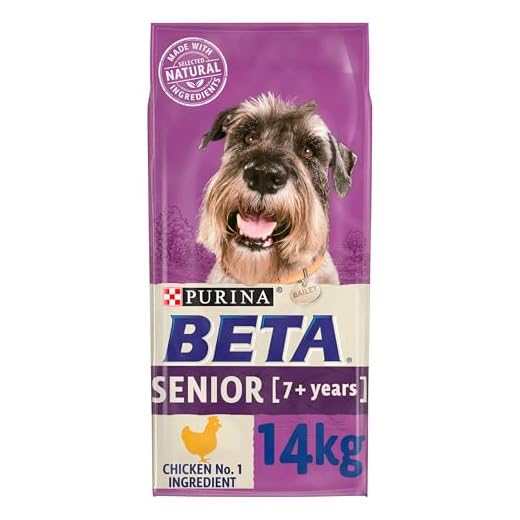




As our furry companions age, we often notice various shifts in their behavior and routines. One of the most concerning changes for pet owners is a sudden lack of interest in mealtime. It’s natural to feel worried when a beloved pet no longer shows enthusiasm for their once-favorite dishes. This section aims to explore potential reasons behind this transformation and provide insights into how we can help our aging friends regain their appetite.
When addressing this issue, it’s crucial to consider a range of factors that might be contributing to this behavior. From health concerns to psychological aspects, a variety of elements could be influencing your senior canine’s eating habits. By understanding these underlying causes, we can take appropriate steps to ensure their well-being and happiness.
Moreover, we’ll delve into practical advice and strategies to encourage a healthy diet in your elderly companion. Whether it’s adjusting their nutritional intake or creating a more appealing dining experience, there are several methods to explore. Our goal is to equip you with the knowledge and tools to support your pet through this stage of life, ensuring they continue to thrive and enjoy their golden years.
Common Health Issues Affecting Appetite
When our furry companions experience changes in their eating habits, it can be a cause for concern. Understanding the potential health issues that could influence their appetite is crucial. Let’s explore some common conditions that might lead to a reduced interest in meals.
-
Dental Problems:
Must-HaveStim-U-Dent Dog Teeth Cleaning KitAdvanced plaque removal technology for petsThis innovative plaque remover kit is designed to clean your dog's teeth effectively, using advanced technology to remove stains quickly while being safe for sensitive gums. With five adjustable modes and an LED light, maintaining oral hygiene has never been easier.Oral discomfort is a significant factor that can make chewing difficult or painful. Conditions like gum disease, broken teeth, or mouth infections are prevalent culprits. It’s essential to monitor for signs such as bad breath, drooling, or reluctance to chew hard food.
-
Gastrointestinal Issues:
Digestive system disturbances can also play a major role. Issues such as nausea, constipation, or inflammatory bowel disease often lead to a decrease in food intake. These conditions may be accompanied by symptoms like vomiting, diarrhea, or abdominal discomfort.
-
Kidney Disease:
Renal conditions can significantly impact overall health and appetite. Symptoms often include increased thirst and urination, weight loss, and lethargy. It’s important to seek veterinary advice if these signs are present.
-
Liver Disease:
The liver plays a crucial role in metabolism and detoxification. When it’s not functioning properly, symptoms such as jaundice, swelling in the abdomen, or behavioral changes might be observed. These issues can lead to a decreased desire to eat.
-
Endocrine Disorders:
Hormonal imbalances, including conditions like hypothyroidism or diabetes, can also affect appetite. These disorders might present with symptoms like weight gain or loss, changes in coat condition, or increased drinking and urination.
Addressing these health concerns promptly with a veterinarian’s guidance is essential to ensure our beloved pets maintain a healthy and happy life. Early detection and appropriate treatment can make a significant difference in managing these conditions.
Changes in Behavior and Eating Patterns
As our furry companions grow older, it’s natural for them to undergo shifts in behavior and eating habits. These alterations can signify various underlying factors affecting their overall well-being and appetite. In this section, we’ll delve into the nuanced behavioral changes and eating patterns that might manifest in our beloved pets.
- Appetite Fluctuations: Our pets may exhibit irregularities in their appetite, ranging from decreased interest in meals to sudden cravings for different types of food.
- Altered Mealtime Behavior: Observing changes in how our pets approach their meals can provide valuable insights into their health. This includes variations in eating speed, reluctance to approach the food bowl, or unusual mealtime rituals.
- Mood and Energy Levels: Behavioral shifts can extend beyond mealtime, impacting our pets’ overall demeanor. Paying attention to alterations in mood, energy levels, and enthusiasm for activities can help us gauge their well-being.
- Preference for Certain Foods: Just like humans, our pets may develop preferences for specific foods or textures as they age. Understanding their dietary inclinations can aid in adjusting their meal plans accordingly.
- Social Interaction: Changes in social behavior, such as withdrawal from interaction during mealtime or increased clinginess, can offer clues about underlying health issues or emotional distress.
By closely monitoring these behavioral changes and eating patterns, pet owners can better address their furry friend’s evolving needs and ensure they receive appropriate care and attention.
Impact of Dental Issues on Appetite
Introduction: As we delve into the intricate web of factors influencing our furry companions’ dietary habits, it becomes evident that dental health plays a pivotal role. Without delving into specifics, let’s explore the profound impact that dental complications can exert on your pet’s appetite and overall well-being.
Chewing Challenges: Imagine a scenario where each bite elicits discomfort or even pain due to oral issues. This impediment can deter your pet from partaking in their meals, leading to a decline in appetite over time.
Loss of Taste Sensation: Just as in humans, dental problems can compromise a dog’s ability to fully experience flavors. Imagine savoring a meal without the richness of taste – it’s hardly enticing, isn’t it? Similarly, your furry friend may find meals less appealing, further exacerbating their reluctance to eat.
Difficulty in Food Prehension: Picture attempting to pick up tiny objects with numb fingers – challenging, right? Dental issues can impair your dog’s ability to grasp and chew their food effectively, making mealtime a frustrating ordeal rather than an enjoyable experience.
Psychological Impact: Beyond the physical discomfort, dental problems can also trigger psychological aversions to food. Imagine associating each meal with discomfort or pain – it’s natural for your pet to develop a reluctance towards eating, regardless of their hunger.
Conclusion: In summation, the implications of dental problems on your pet’s appetite are multifaceted and profound. From physical discomfort to psychological aversions, these issues can significantly diminish your furry friend’s enjoyment of mealtime. Therefore, prioritizing dental health is not only crucial for maintaining a healthy smile but also for preserving their appetite and overall well-being.
When to Seek Veterinary Advice for Changes in Canine Appetite
As a responsible pet owner, observing shifts in your furry companion’s eating habits is crucial for maintaining their well-being. When your cherished canine companion begins to exhibit reluctance or aversion to consuming their meals, it may signal underlying health concerns. While some fluctuations in appetite are normal, persistent changes demand attention.
Recognizing Red Flags
- Consistent refusal or decreased interest in meals over several days
- Unexplained weight loss or sudden gain
- Significant alterations in behavior accompanied by appetite changes
- Persistent vomiting, diarrhea, or other gastrointestinal disturbances
While occasional shifts in appetite can stem from factors like environmental changes or temporary stress, prolonged or severe alterations warrant professional evaluation. Consulting a veterinarian is imperative to rule out potential medical issues and ensure timely intervention.
Importance of Professional Assessment
- Expert diagnosis and treatment of underlying health conditions
- Tailored dietary recommendations to address specific needs
- Prevention of potential complications and progression of health issues
- Guidance on supportive care measures to improve appetite and overall well-being
Remember, proactive monitoring and prompt veterinary consultation play pivotal roles in safeguarding your beloved pet’s health and happiness. Trust your instincts and prioritize their welfare by seeking professional guidance when needed.







